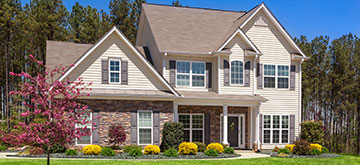Repair vs. Replacement
A good way to determine whether to repair or replace your HVAC system is to consider factors like the system’s age, repair costs, energy efficiency, and overall performance. Here’s a breakdown:
Key Factors to Consider
-
Age of the System
- If your system is 10-15 years old, it’s near the end of its lifespan, and replacement might be more cost-effective than constant repairs.
- Newer systems (under 10 years old) may still have a lot of life left, making repair the better option.
-
Cost of Repairs vs. Replacement
- A common rule of thumb is the 50% Rule: If the cost of the repair is 50% or more of the cost of a new system, replacement is usually the better choice.
- Another rule is the $5,000 Rule: Multiply the repair cost by the system’s age. If the result is over $5,000, replacement is the better option.
- Example: A 12-year-old system needs a $600 repair → 12 × 600 = $7,200 → Consider replacement.
-
Energy Efficiency & Savings
- If your unit has a low SEER rating (under 14) and your energy bills are high, upgrading to a more efficient system can save money in the long run.
- Newer systems can cut energy costs by 20-40%, offsetting the cost of replacement.
-
Frequency of Repairs
- If you’ve had multiple repairs in the past two years, it’s a sign that the system is wearing out.
- If major components (compressor, heat exchanger, evaporator coil) fail, it’s often better to replace than to invest in costly repairs.
-
Comfort & Performance Issues
- If certain rooms are too hot or too cold, humidity control is poor, or the system runs constantly without maintaining temperature, a new system may be needed.
 Heating & AC
Heating & AC Additional Services
Additional Services